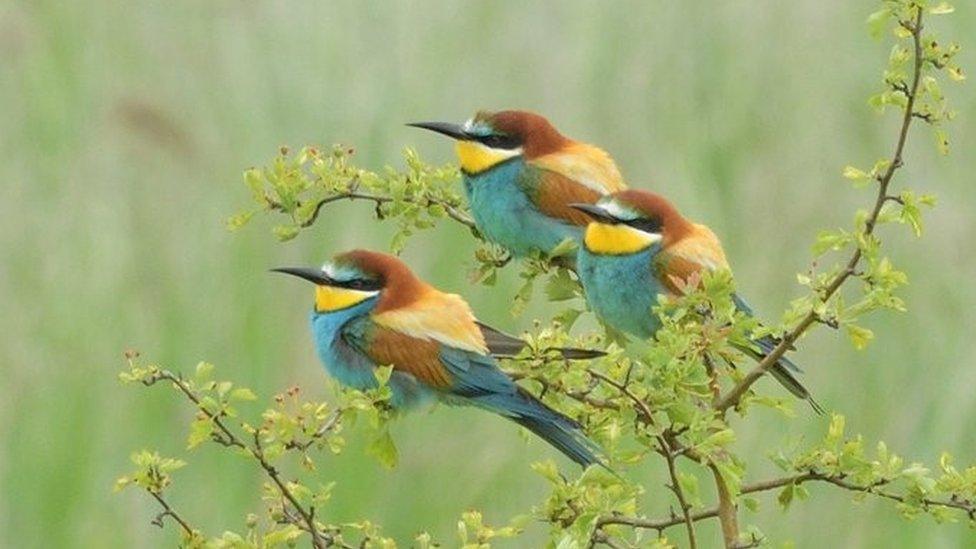Bee-eater flock leaves Norfolk after breeding chicks
- Published
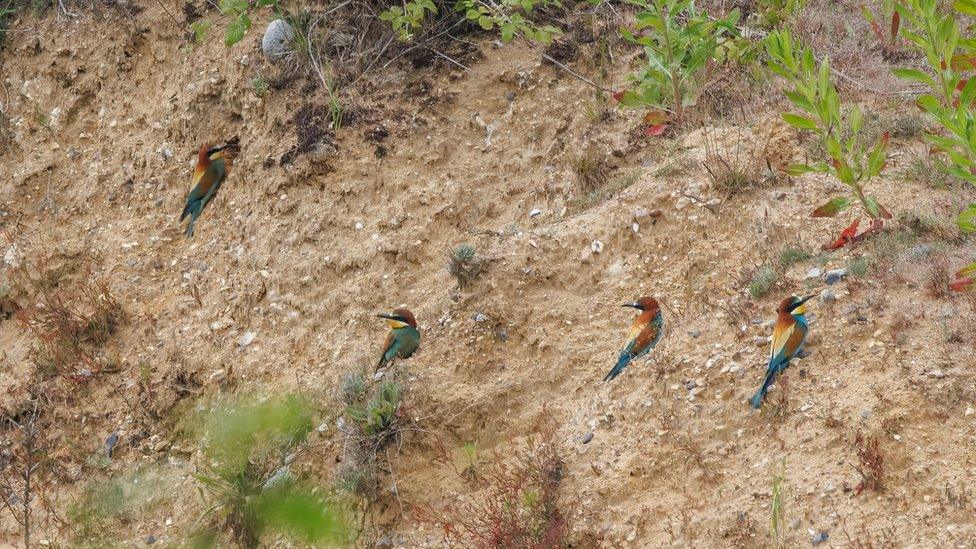
The RSPB set up a live webcam to enable people to enjoy the sight of the nesting bee-eater flock
A colony of breeding bee-eaters have successfully hatched chicks in the UK and migrated south for winter, the RSPB has said.
European bee-eaters, rare to UK shores, set up home in a disused quarry in Trimingham, Norfolk, in June.
The RSPB said, external the flock's residence was "a red alert for global warming".
The bird's breeding attempts in the UK have increased, with six nests recorded in the past 20 years, the charity added.
In June 2021, nine bee-eaters were spotted in land behind a retail park in Great Yarmouth.
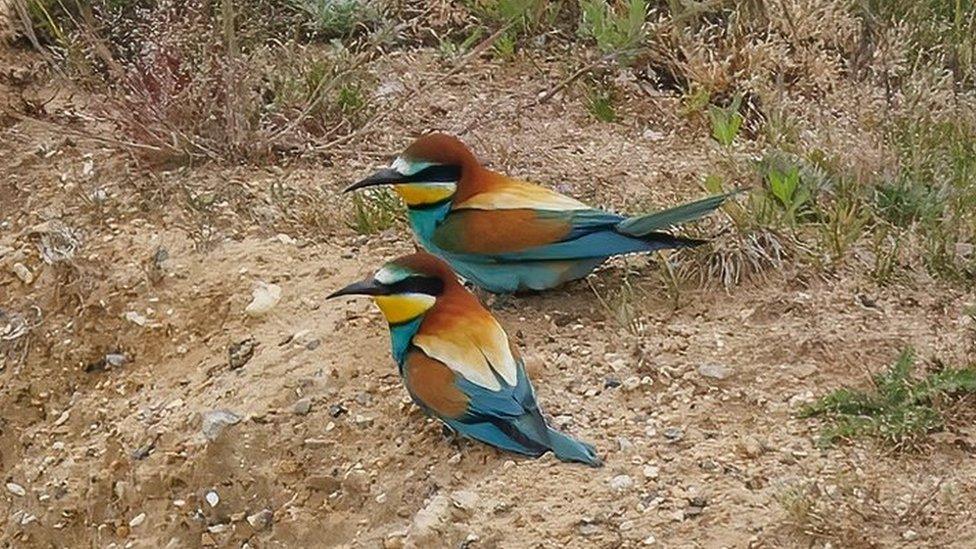
The bee-eaters were first spotted in Norfolk over the Jubilee weekend
There are 27 different types of bee-eaters to be found, mostly in Asia and Africa.
The birds are known to migrate to southern Europe in late April through to early June.
The charity said bee-eaters were "super" birds with the "most beautiful flutey calls that are what usually first draw your attention".
The birds usually pair up for life and they like company, the RSPB said.
Bee-eaters search a large area for food and eat many different types of flying insects, including different species of bee.
The small colony was not expected to have made any impact on local bee populations, the RSPB said.
Some 15,000 people are thought to have visited the Norfolk colony, with many more following their progress via a live webcam.
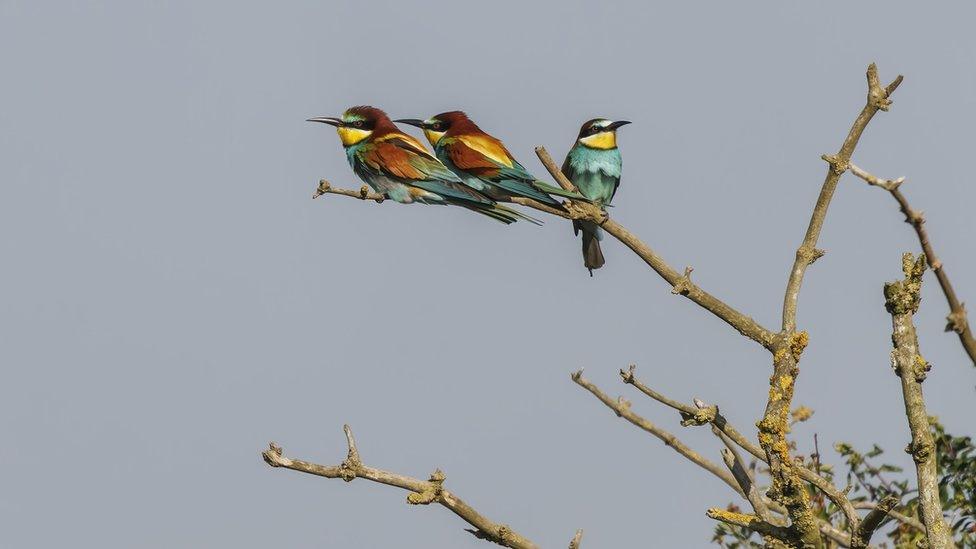
The RSPB said the birds were "an unmistakable visitor to have arrived in Norfolk"

Find BBC News: East of England on Facebook, external, Instagram, external and Twitter, external. If you have a story suggestion email eastofenglandnews@bbc.co.uk, external
Related topics
- Published17 June 2022
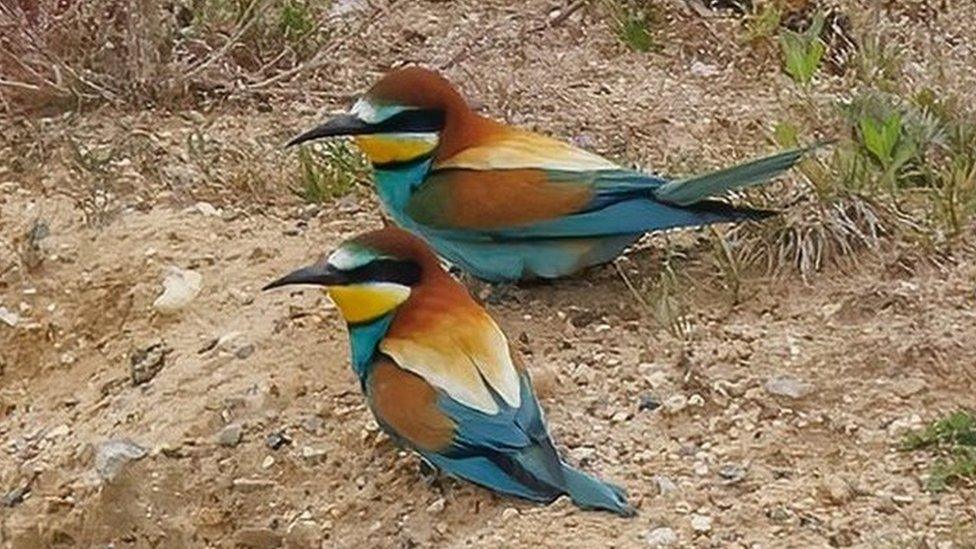
- Published23 June 2021
